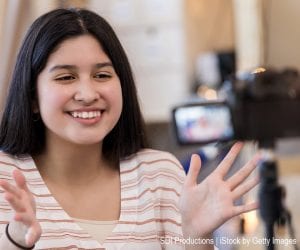At PopEd, we want to help equip your students, the future generation of leaders and voters, tackle the issue of climate change head-on. As one of the most pressing global challenges of the 21st century, today’s students will need to know the facts about our changing climate and be able to think critically about the related environmental and social issues in order to problem solve for a brighter future.
Want Classroom Resources on Climate Change?
For this reason, PopEd will be focusing on the theme of climate change for the next two months. We’ll be using social media to share engaging climate change lesson plans, online media, infographics, and student readings for classroom use as well as articles and reports to keep you and your students up to speed with the latest news.
Follow PopEd on Facebook and Twitter or search #PopEdClimate to receive exclusive access to climate themed teaching resources that are not freely available on our website.
Here’s a sneak peek of some materials we’ll be sharing:
• Cap and Trade Game (high school lesson plan): Students play a game that simulates a cap and trade system, and analyze its successes and weaknesses as a policy to reduce emissions of pollutants and greenhouse gases.
• People and Climate Change: The Data Is In (middle school lesson plan): Students interpret various forms of data (graphic, written, and visual) and identify relationships between population growth, greenhouse gas emissions, temperature rise, ice melt, and sea level rise. (Follow #PopEdClimate for access!)
• World of 7 Billion contest winners (climate change category): Students can learn about climate issues from their peers by watching these winner videos from our annual World of 7 Billion student video contest.
• Climate Change Food Calculator: This fun interactive from the BBC highlights the carbon footprint of our food choices.
Why Teach about Climate Change?
Scientists agree that climate change is a result of anthropogenic causes (human activities), especially carbon dioxide emissions from fossil fuel combustion. Simply put, the more people there are on the planet, the more energy we use to support our lifestyles and the more CO2 is released into the atmosphere. However, it’s not only about the number of people on Earth, it’s about how energy intensive our lives are – how frequently we drive our cars, how heavily we rely on industrially processed goods, how much meat we consume, etc. As population grows through this century and global affluence increases, CO2 emissions will continue to rise unless drastic changes are made.
Experts have now concluded that we must limit warming to just 1.5 degrees Celsius above pre-industrial levels (a decrease from the original 2-degree goal) in order to avoid catastrophic and irreversible impacts of climate change. Achieving this will be no easy feat and will take rapid commitment from both leaders around the world as well as individuals. What’s more, the impacts of climate change will be felt most by the world’s most vulnerable and rapidly growing populations, making issues like food and water security, public health and financial security even more difficult to address. Decreasing our dependency on fossil fuels, both on a global scale and in our individual lives, will go a long way to tackling these complicated issues – and today’s students will be the ones to lead the charge.
Every few months, Population Education will pick a theme and share ideas, lessons, media tools and more related to the topic. Each topic will have its own hashtag, but we’ll also use the universal hashtag #PopEdTheme to tie them all together and make it easy for you to join the conversation.



